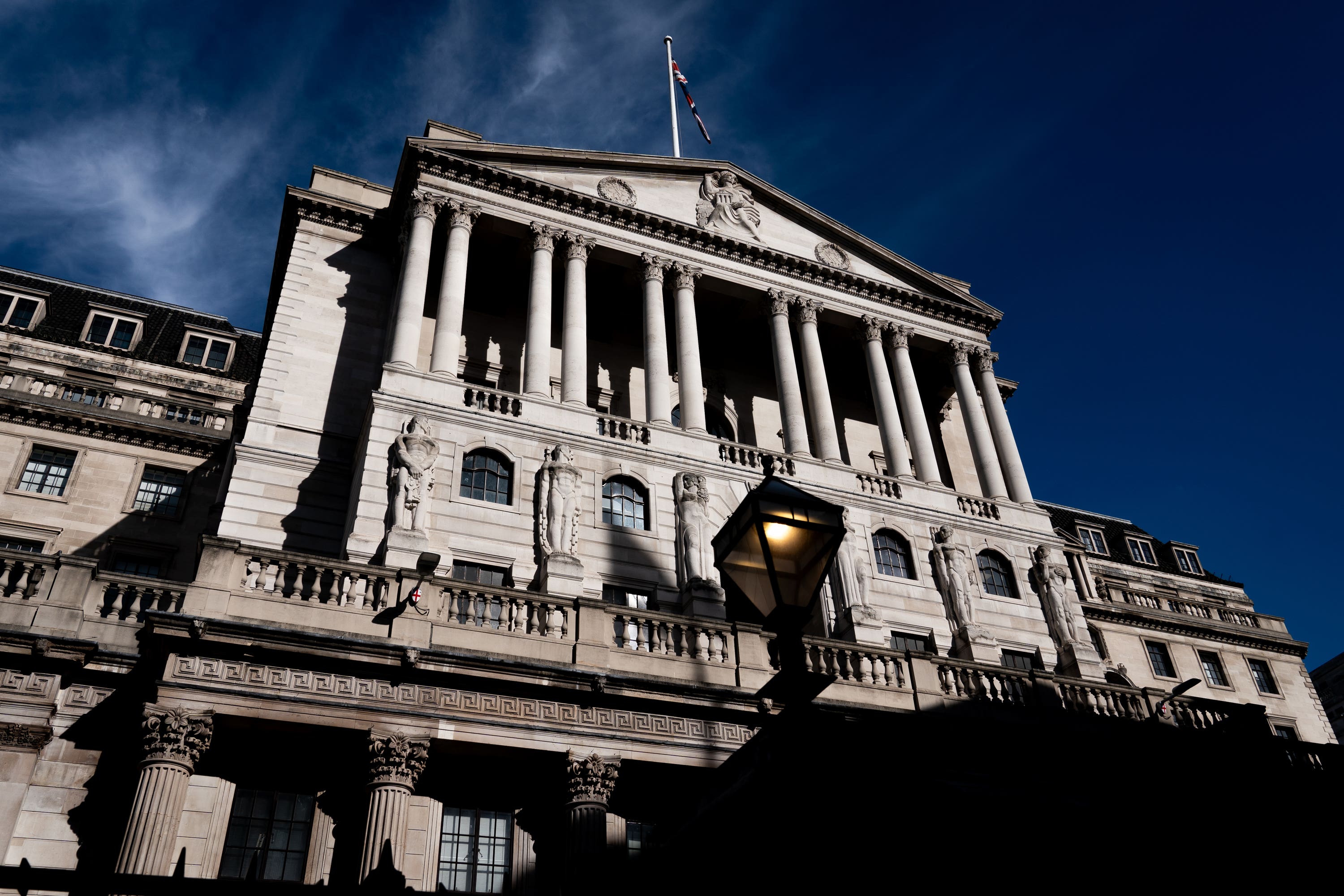Policymakers hold interest rates at 16-year high in ‘finely balanced’ decision
Members of the Bank’s Monetary Policy Committee (MPC) voted to hold rates at 5.25% for the seventh consecutive meeting on Thursday.

Your support helps us to tell the story
From reproductive rights to climate change to Big Tech, The Independent is on the ground when the story is developing. Whether it's investigating the financials of Elon Musk's pro-Trump PAC or producing our latest documentary, 'The A Word', which shines a light on the American women fighting for reproductive rights, we know how important it is to parse out the facts from the messaging.
At such a critical moment in US history, we need reporters on the ground. Your donation allows us to keep sending journalists to speak to both sides of the story.
The Independent is trusted by Americans across the entire political spectrum. And unlike many other quality news outlets, we choose not to lock Americans out of our reporting and analysis with paywalls. We believe quality journalism should be available to everyone, paid for by those who can afford it.
Your support makes all the difference.The Bank of England has kept interest rates unchanged two weeks before the UK holds the General Election, but revealed that the vote was increasingly “finely balanced”.
Members of the Bank’s Monetary Policy Committee (MPC) voted to hold rates at 5.25% for the seventh consecutive meeting on Thursday.
The decision comes a day after official figures showed that the rate of inflation hit the Bank’s 2% target in May for the first time for nearly three years.
“It’s good news that inflation has returned to our 2% target,” Andrew Bailey, the Bank’s governor said.
“We need to be sure that inflation will stay low and that’s why we’ve decided to hold rates at 5.25% for now.”
But members of the nine-person committee were split over the decision with two policymakers, Swati Dhingra and Dave Ramsden, voting again for rates to be reduced this month.
Furthermore, it appeared that it was a close call for three other members of the MPC who were wavering on whether to keep rates unchanged.
For those members – understood to have included Mr Bailey as well as deputy governor Ben Broadbent – “the policy decision at this meeting was finely balanced”, a summary of the committee meeting read.
They felt services inflation – an important gauge which looks only at service-related categories such as hospitality and culture – was not putting as much pressure on the overall rate.
George Buckley, chief European economist for Nomura, said the decision being “finely balanced is very important indeed”, because if inflation data comes in lower over the next month then that “might be enough to push these members into voting for a rate cut”.
“You need more than half the committee to vote for lower rates in order to get it,” he said.
Yet the remaining members felt that “more evidence of diminishing inflation persistence was needed” before they could safely cut rates.
Mr Broadbent steps down from the committee at the end of this month and he will be replaced by Clare Lombardelli, who will help decide interest rates at the next meeting in August.
Thursday’s decision comes three weeks before the UK holds the General Election, but policymakers stressed that the timing of the election was “not relevant to its decision” on rates.
Nevertheless, with polls suggesting Sir Keir Starmer is on course to lead Labour to victory on July 4, an August rate cut could provide him with an economic morale boost early in his premiership.
But Tories will be left questioning why Rishi Sunak called a summer election, when he could have benefited from interest cuts being reduced later on in the year.
Most Westminster-watchers expected Mr Sunak to wait for the autumn to call the election.
James Smith, developed markets economist for ING, reiterated beliefs that the Bank was “getting closer to the point of cutting rates”.
“Assuming the next inflation report in mid-July doesn’t contain any nasty surprises, we still think the Bank will vote for a rate cut in August,” he said.